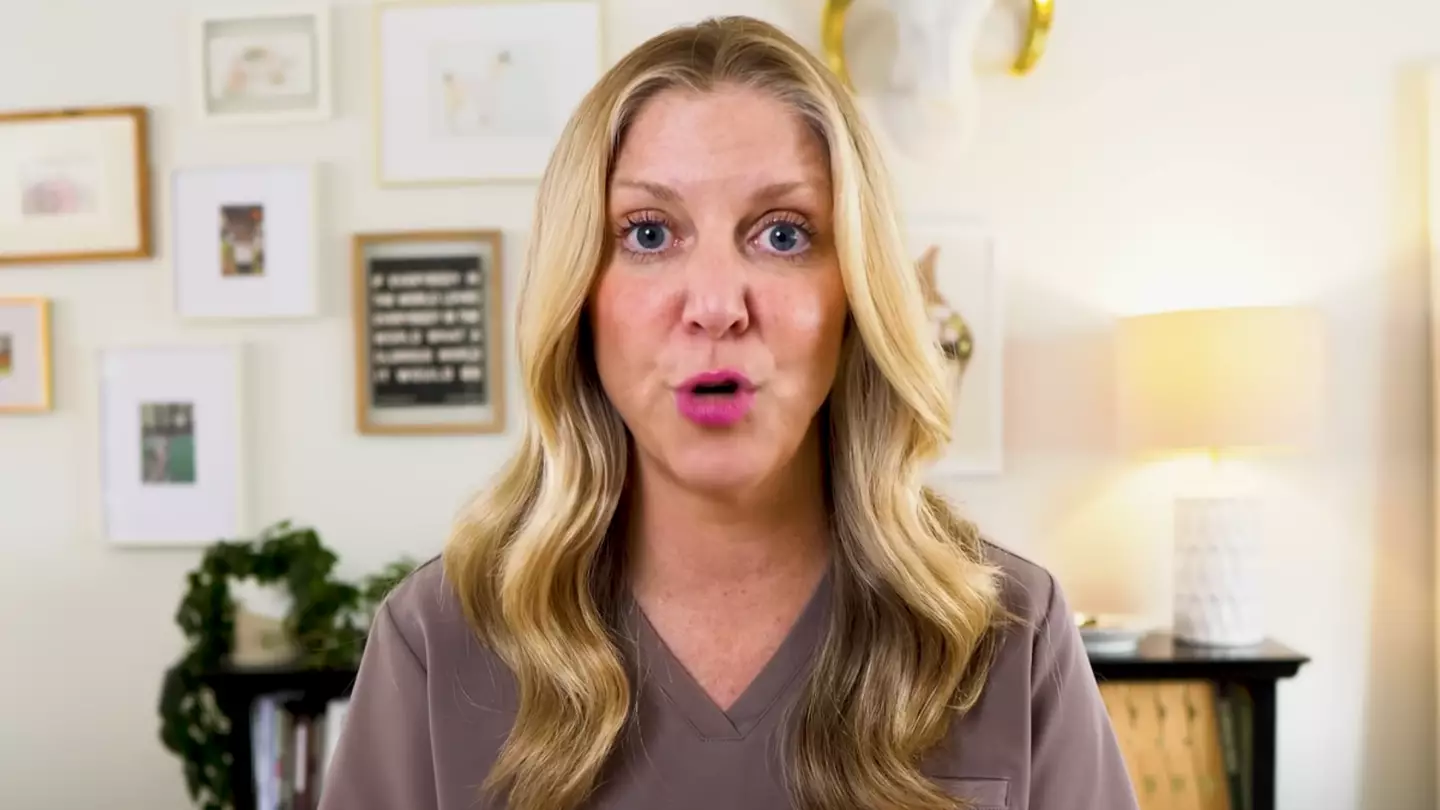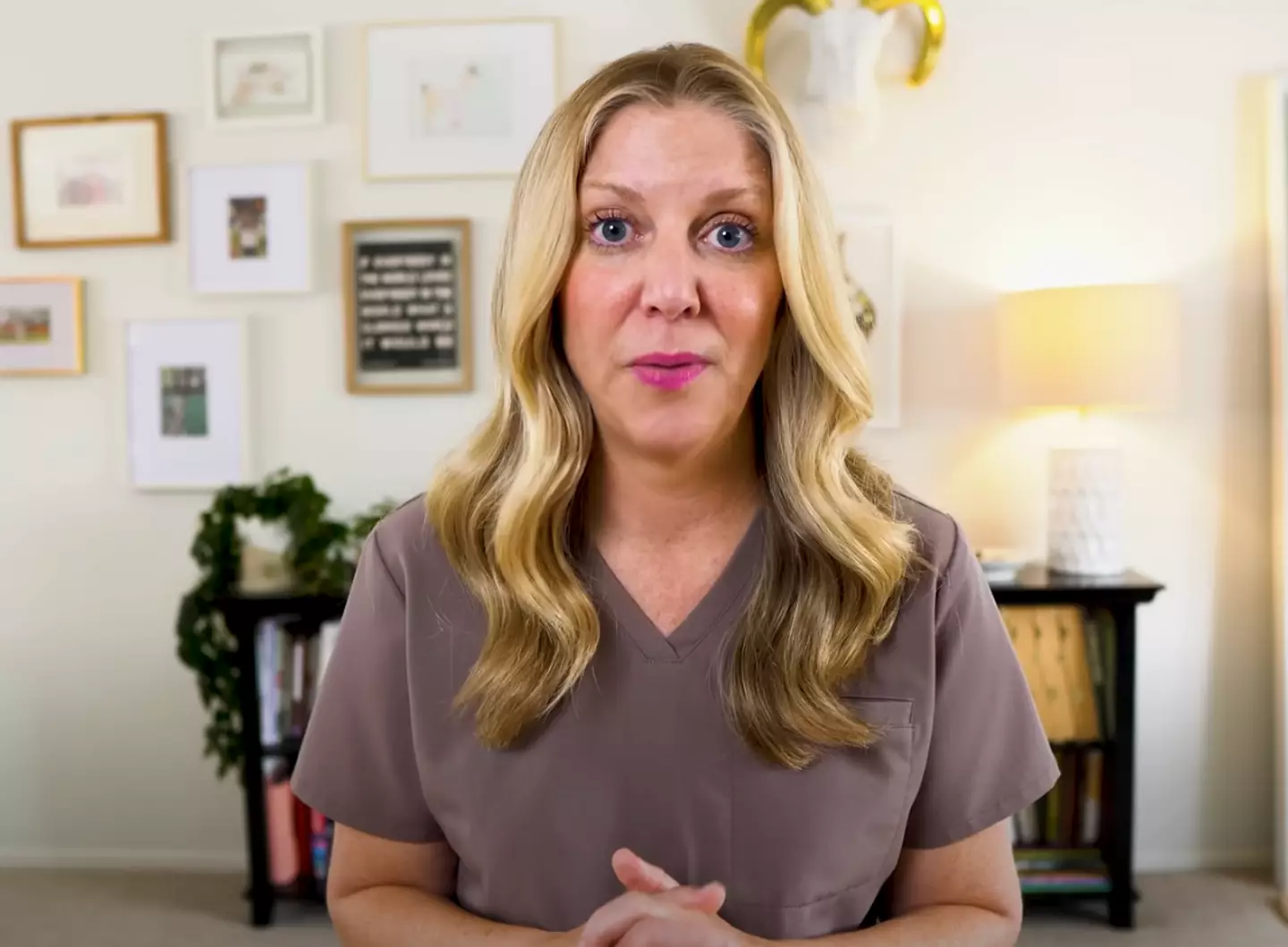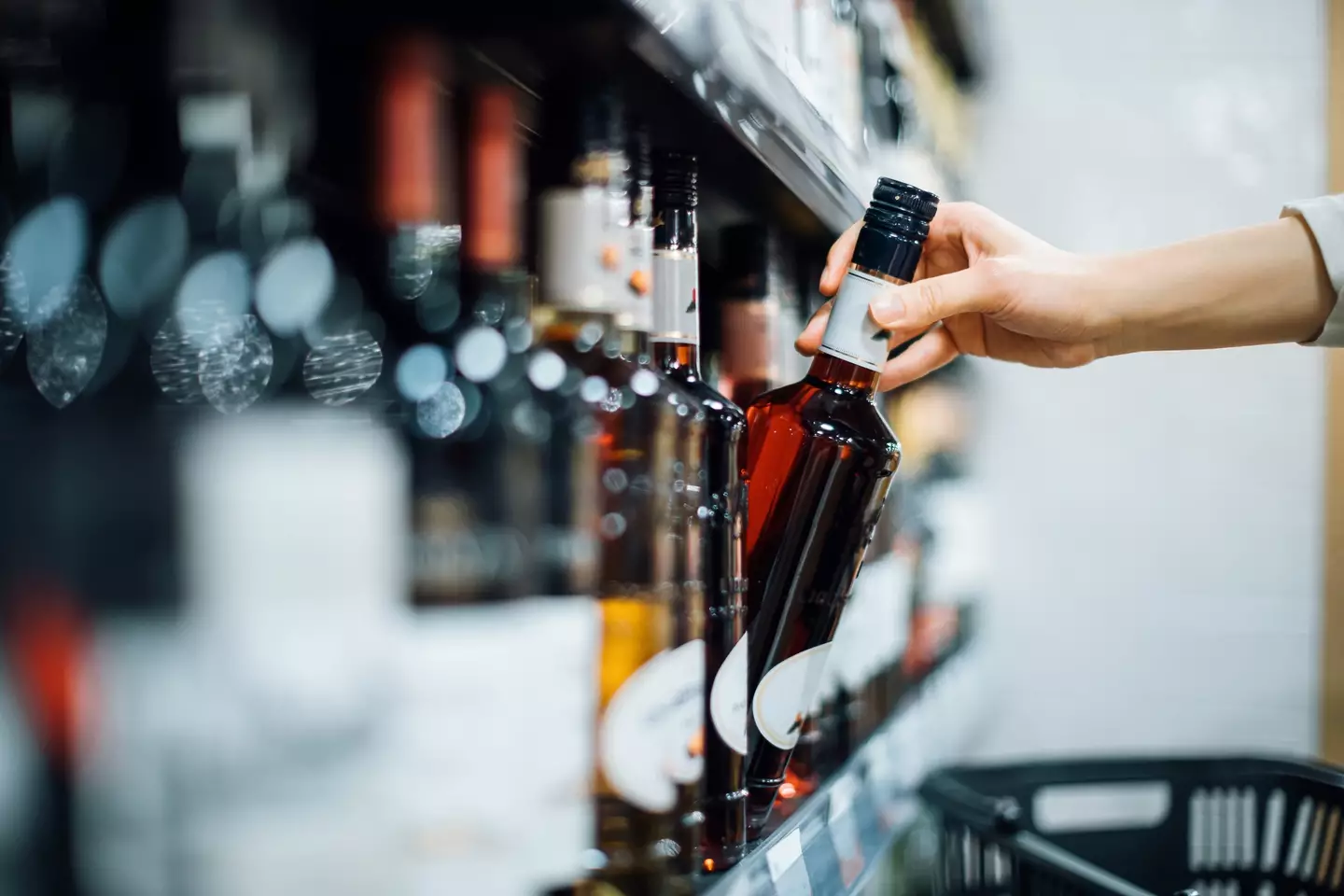
A hospice nurse who has seen 'thousands of deaths' has said she now lives by seven key rules.
Julie McFadden, better known online as Hospice Nurse Julie, has worked as an end-of-life carer for nearly a decade.
Julie even has her own book, titled Nothing to Fear: Demystifying Death to Live More Fully, and shares videos on her YouTube channel, where she educates others on death and palliative care.
For example, in one video she has explained what the 'worst thing to die of is', as well as the noise someone makes when they have less than 24 hours left to live.
Advert
In one clip, Julie opened up about the seven key rules that she now lives by, after caring for so many people at the end of their lives.

Drinking alcohol
In the video, Julie explains that one of the top rules she lives by is not drinking excessively.
"It has been proven that it is not good for your health to drink daily," she said.
"Drinking daily or drinking excessively, I would not do. Our liver is a beautiful organ that does a lot of stuff for us. And when it's not working, it's bad.
"I've seen enough people die from alcoholic deaths, from liver cirrhosis from drinking, to know it is not good. And it is preventable."
Smoking and vaping
Smoking or vaping is a no-go for Julie, who says that the health consequences for doing so can be widespread.
"Everyone says this I know, but I would not smoke or vape," she explained.
"Vaping is just as bad. It affects your whole cardiovascular system, even if you don't get emphysema or COPD [chronic obstructive pulmonary disease] or some kind of lung cancer, you will have cardiac issues... there's a lot of things that come along with smoking and vaping.
"Watching people die from those diseases is not fun."
Motorcycles
Julie's third rule is that she would never ride a motorcycle.
"I would not ride a motorcycle, helmet or no helmet, and this is because I was a trauma ICU nurse," Julie said.
"You'd be surprised how prevalent accidents are with these vehicles, they just are not safe, helmet or no helmet.
"So many deaths, so many accidents, just not worth it for me."
Julie also added that she wouldn't ride a bicycle on a road, either.

Yearly checkup
In the video, Julie explained there are a series of things she *would* do, including having a yearly check-up at the doctor's, with blood tests and screenings.
"I would always go yearly to a doctor to get blood work and a physical check up," she said.
"Get a check up, get your blood pressure done."
Losing weight without trying
Julie explained that if you notice unintentional weight loss, it should be checked out by your doctor.
She went on to say: "You've got to figure it out. If I ever lost 10 to 15 pounds without trying, I would go to the doctor, demand blood work and might even ask for a PET scan and pay out of pocket.
"Unintentional weight loss is such a huge indicator of cancers that are hard to detect.
"Unexplained weight loss or generalised fatigue could be an indicator or something very serious."
.jpg)
Learning to be flexible
Julie explained she has started working on being more flexible and open to change.
She added: "Learning to be okay with change, at the end of life you're going to have tons of change and you're not going to have a lot of control over your life at times and that's hard.
"It's particularly hard when people are very fiercely independent and don't like to ask for help and don't like change - me.
"I know that about myself so I am currently working on learning and practicing change... being flexible, being okay with being uncomfortable... I am continuously working on learning how to be that way."
Don't put things off
Julie said she is also working on not putting things off, after seeing this firsthand many times. For example, people will often delay doing their wills or filling out certain forms.
"They keep pushing things down the line and when you do that you create a lot of problems and emergency situations," said Julie.
"... All these things pile up when you put things off. I practice making decisions now and thinking ahead of time."
If you have experienced a bereavement and would like to speak with someone in confidence, contact Cruse Bereavement Care via their national helpline on 0808 808 1677.
